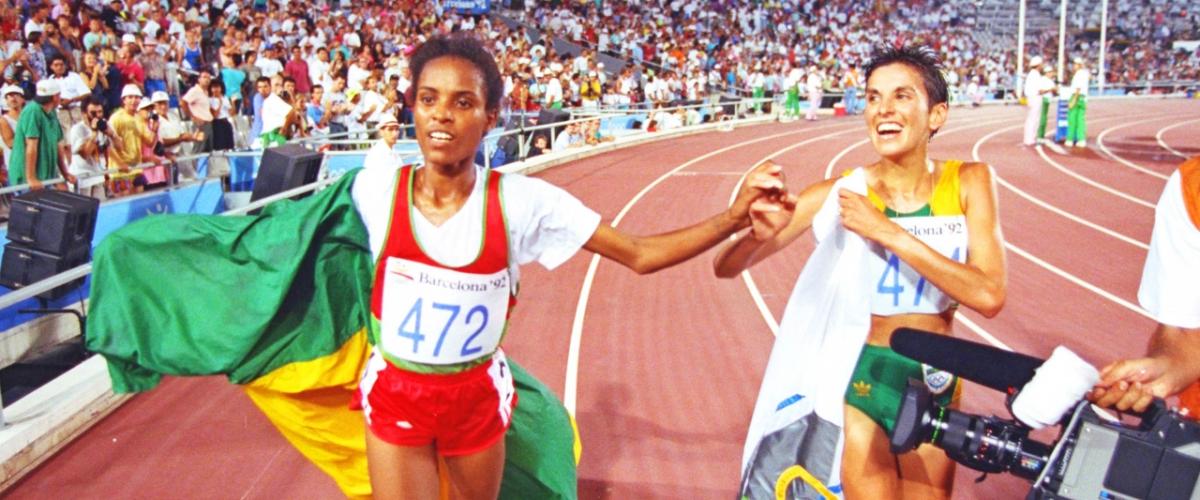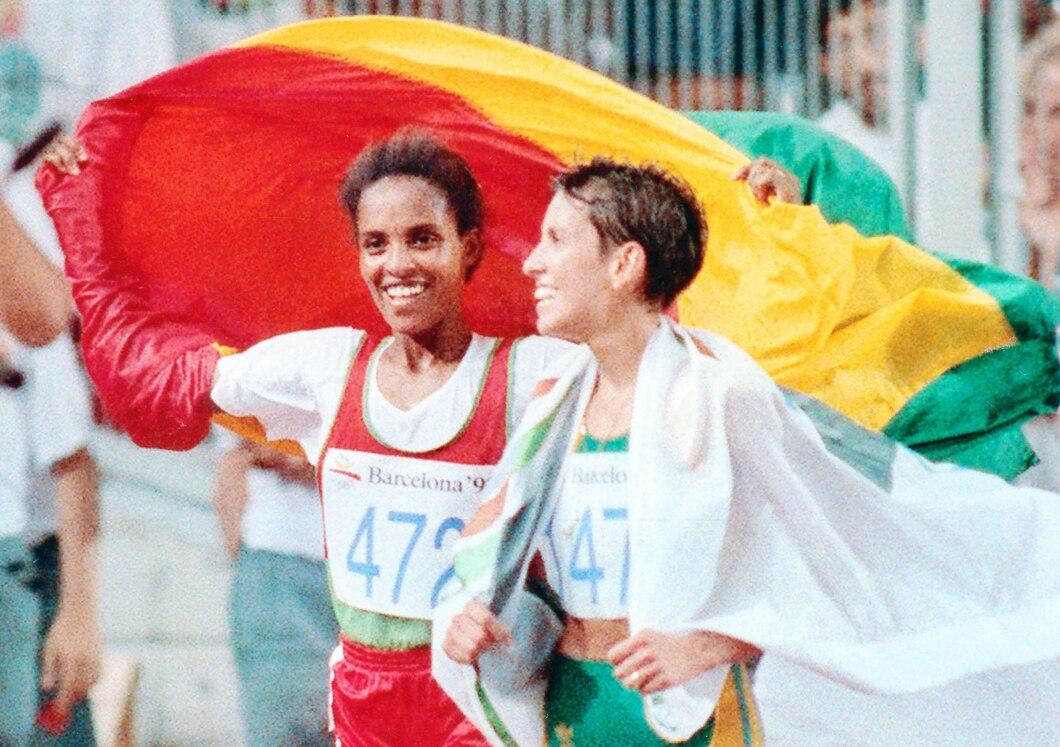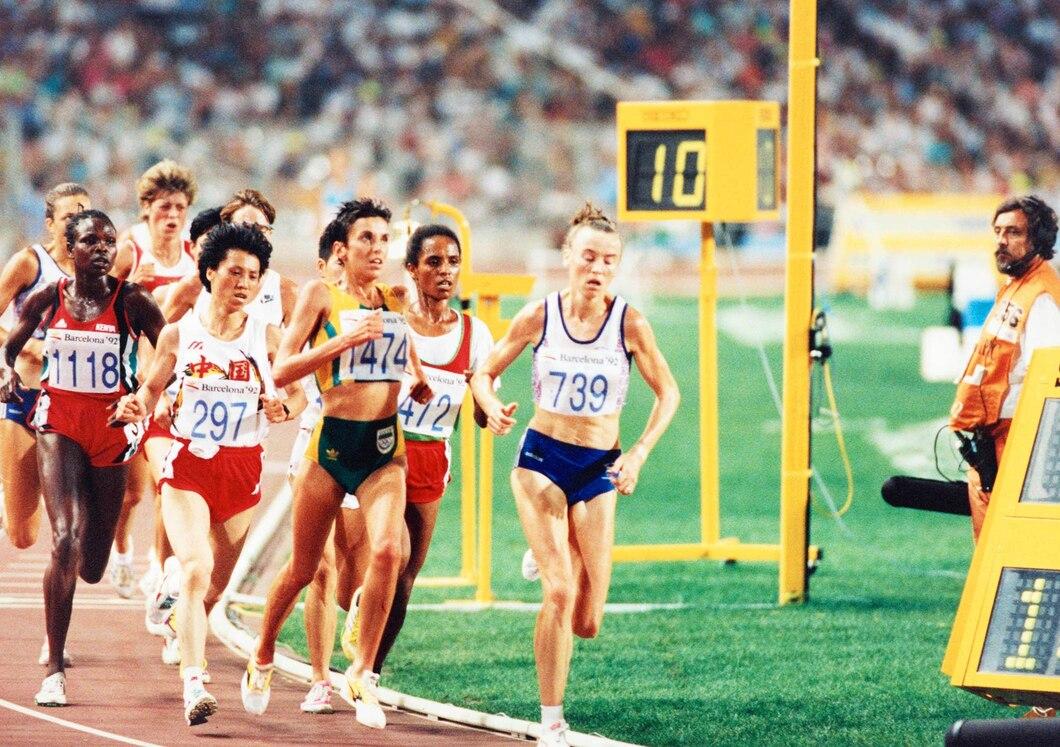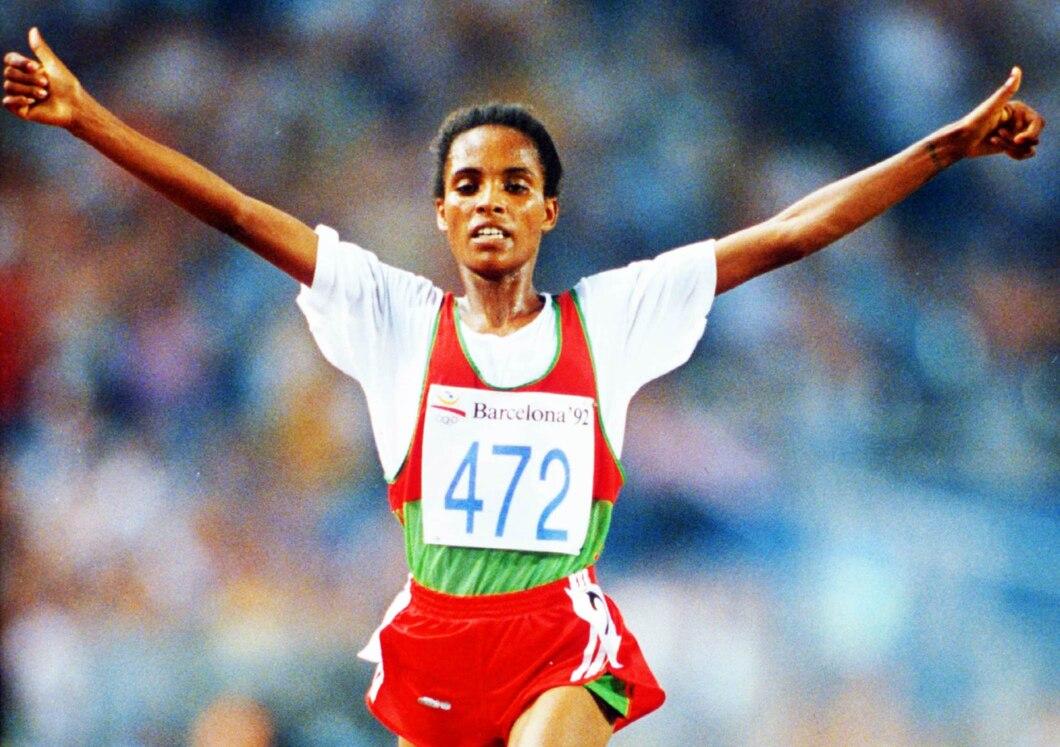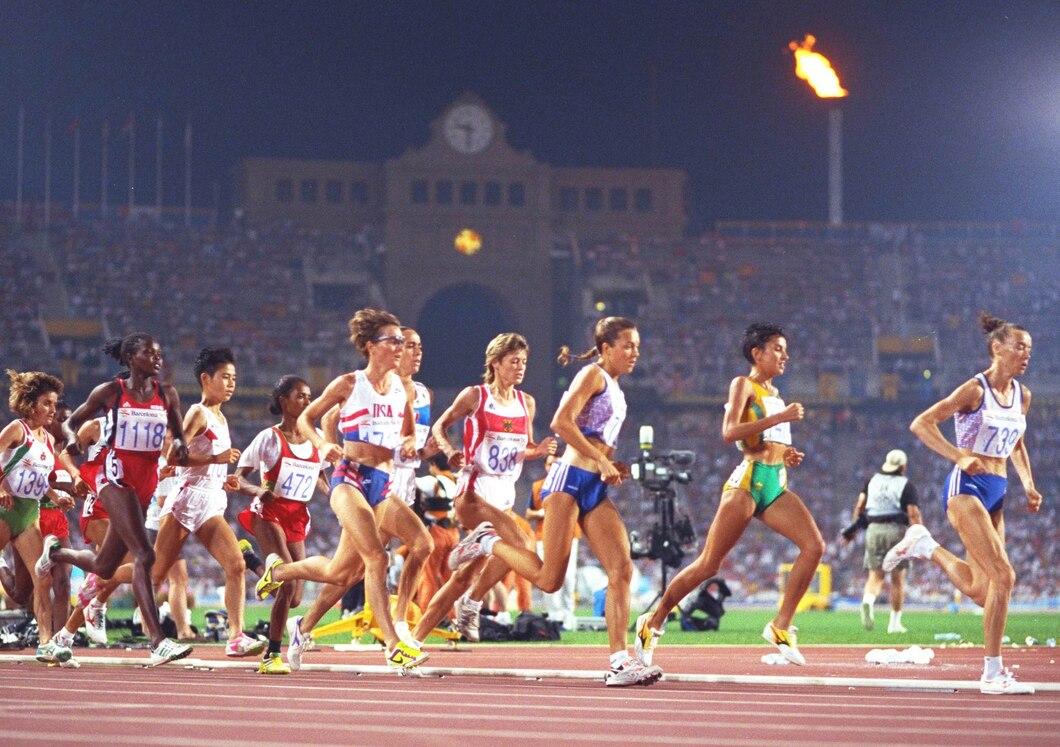On the International Day of Peace, Olympic Medallists Tulu and Meyer Reflect on a Defining Winning Moment in Barcelona 1992: “We Represented Africa.”
International Olympic Committee
In a symbol of hope for a new Africa, Tulu, as the first black African female Olympic champion, joined hands with South Africa’s first individual medal-winner after apartheid. South Africa had been banned from Olympic competition since 1964 because of its discriminatory politics, and the image of these two sporting heroes united in a poignant gesture captured the imagination of the globe.
The warmth, pride and genuine sense of affection for each other is clear in the voices of both Derartu Tulu and Elana Meyer as they discuss the events of one hot, humid night 28 years ago. The duo have gone on to achieve great things on and off the track since, but they both seem to appreciate that perhaps nothing will carry quite as significant an impact as their actions after the final of the women’s 10,000m at the Olympic Games Barcelona 1992.
“It happened so quickly. In the moment it was just this incredible celebration, this unity, and I think even though I didn’t realise the extent of the impact I felt it was something special,” Meyer said, with the woman who beat her to gold that night swiftly echoing those thoughts.
“I was very happy. I could not control myself, I could not express my feelings in that moment,” Tulu said. “Imagine a black, young African girl in the ocean of humidity and heat and an atmosphere beyond imagination snatching the gold. It was an unforgettable situation, after all I was Tulu of Ethiopia.
“As for Elana, I had never met her before, but she acted as if we were acquainted and we were former friends. That was a very big surprise for me. Amazingly we had the best-ever hug. We never forgot we two were from Africa.”
It was a sight that lit up the front pages of newspapers all over the world: two world-class runners, one white, one black, draped in the flags of Ethiopia and South Africa, raising arms together as one. For both, it was a first Olympic experience and had been quite a journey.
The women’s 10,000m at the 1992 Olympic Games represented a long-awaited opportunity for Meyer, the South African flier who finally had a chance to prove herself on the biggest stage of them all. Restricted to national competition for almost a decade due to the consequences of apartheid, the then 25-year-old knew she was “competitive on paper” – in 1991 she had run the fastest women’s 3,000m in South African history – but had “zero international experience”.
“When I arrived in Barcelona it was, ‘OK, we are here, it’s true. Finally we are going to have the chance to compete.’ It was such a mixed bag of emotions,” Meyer said. “I was relieved, excited, hungry.”
In her own words, it was Great Britain’s Liz McColgan, the reigning women’s 10,000m world champion, and the USA’s Lynn Jennings, the three-time world cross-country champion, who were most prominent on Meyer’s radar. The 20-year-old Tulu was an intriguing prospect but no more than that.
“In ’91 [at the World Athletics Championships in Tokyo], she [Tulu] went out with Liz [McColgan] and faded pretty quickly, and didn’t really make an impact,” Meyer said.
Despite being just 19 at those championships, Tulu saw things differently in Barcelona. Born in the same town as all-time great and three-time men’s Olympic distance champion Kenenisa Bekele, Tulu felt she had something, even if the conditions in the baking Spanish city were a long way from the cold rural highlands of home.
“The first day [in Barcelona] was toxic, very hot and humid. It was very difficult to breathe and I was sweating to death,” Tulu said. “I was thinking a million things, and one of these was how I could win the race by using my special running style and system.
“I was confident enough of my training and performance level. I was certain I would be very competitive, and I was definitely very sure I would not give up easily.”
Frustrated that front-runner McColgan was not cranking up the pace she felt she needed, Meyer took matters into her own hands with 10 laps to go in the final. She moved outside to grab a sponge and then suddenly darted into the lead. As she had hoped, most of the field could not cope with her burst. But one white T-shirt-wearing teenage Ethiopian seemed utterly unfazed.
After shadowing Meyer for nine laps, Tulu produced an extraordinary final 400m to win by 30 metres and almost six seconds. In the process she became the first black African female Olympic champion, with Meyer grabbing South Africa’s first individual Olympic medal since 1960.
“I gave it my all. I made the race happen and I was outsprinted by the better athlete on the day,” Meyer said simply and graciously. “At the end, it was such a relief for me to get a medal.”
It was this emotion that led Meyer towards her conqueror. Footage of the pair conversing arm-in-arm and wreathed in smiles is even more poignant when you realise they did not speak the same language.
“I didn’t know English so I didn’t answer Elana, who was speaking a lot,” laughed Tulu who would go on to win the 10,000m title for a second time at Sydney 2000, setting an Olympic record in the process. “But I could read in her face she was very happy with my victory and her second place didn’t hurt her.”
The Ethiopian is candid that she did not know much about Meyer, or any South Africa athletes at that time; but what she did know was that they shared an icon, Nelson Mandela.
“My country always considers this world hero as its leader,” Tulu confirmed.
And it was this sense of togetherness, of African unity, that made such an impact on the watching world.

